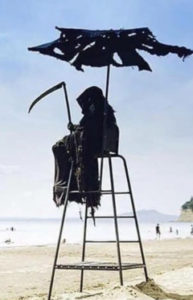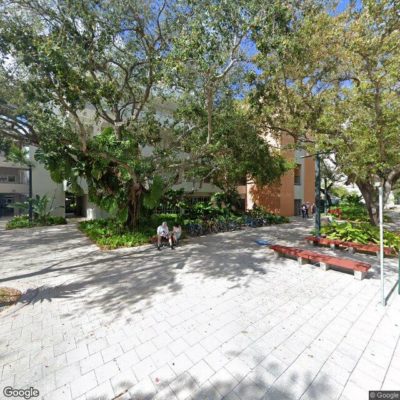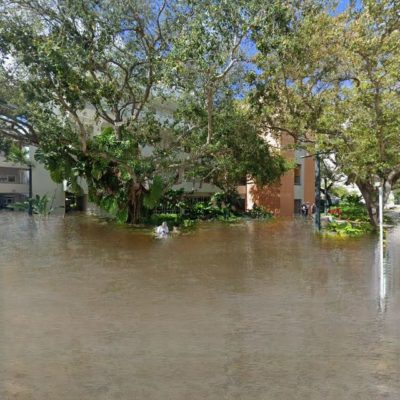 I so wish I were making this up. Our glorious Governor, Ron DeSantis (R-Covid), has hatched a new plot to spread the pandemic in Florida: he’s inviting all the law enforcement officers from other states who got fired for not getting a COVID vaccine to come on down and infect us here.
I so wish I were making this up. Our glorious Governor, Ron DeSantis (R-Covid), has hatched a new plot to spread the pandemic in Florida: he’s inviting all the law enforcement officers from other states who got fired for not getting a COVID vaccine to come on down and infect us here.
The reasons why cops and other first responders need to be vaccinated are obvious: they come into contact with a lot of people, which makes them higher risk to contract and then spread the virus. Plus many of the people police come into contact with have no choice about the contact, be a stop for questioning, a stop-and-frisk, or an arrest. Vaccinating police officers vastly reduces the chance they will become both ill and if ill, seriously ill, which is good for public safety because it means they are far less likely to be infectious and because it means they are available for duty.
In hopes of attracting these viral vectors to Florida DeSantis stated that he’ll ask his the state legislature to pass a law giving a $5000 bonus to any out-of-state police officers who relocate to Florida.
As to the argument that vaccinated police officers might be dangerous to our lives, DeSantis has an answer, albeit one utterly detached from reality:
“On a scientific basis, most of those first responders have had Covid and have recovered,” DeSantis claimed without evidence. “So they have strong protection and so I think that influences their decision on a lot of this that they have already had it and recovered.”
DeSantis delivered this fantasy on Fox News of course.
(It’s true that five times as many police officers have died of COVID as have been killed in the line of duty, but that’s a far cry from saying they all have natural immunities. It is also true that the evidence of the relative merits of natural immunity and vaccination immunity levels and reinfection rates are confusing and even contradictory. But where the idea that cops have all had COVID comes from, I have no idea.)



 According to Nature,
According to Nature, 
 I so wish I were making this up. Our glorious Governor, Ron DeSantis (R-Covid), has hatched a new plot to spread the pandemic in Florida:
I so wish I were making this up. Our glorious Governor, Ron DeSantis (R-Covid), has hatched a new plot to spread the pandemic in Florida: